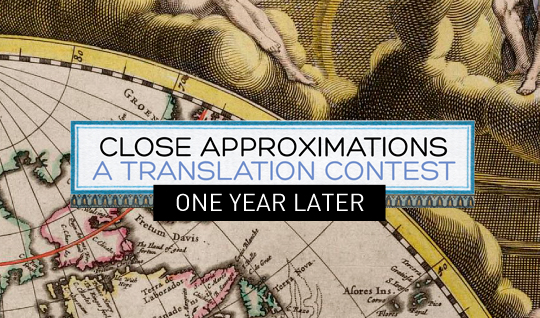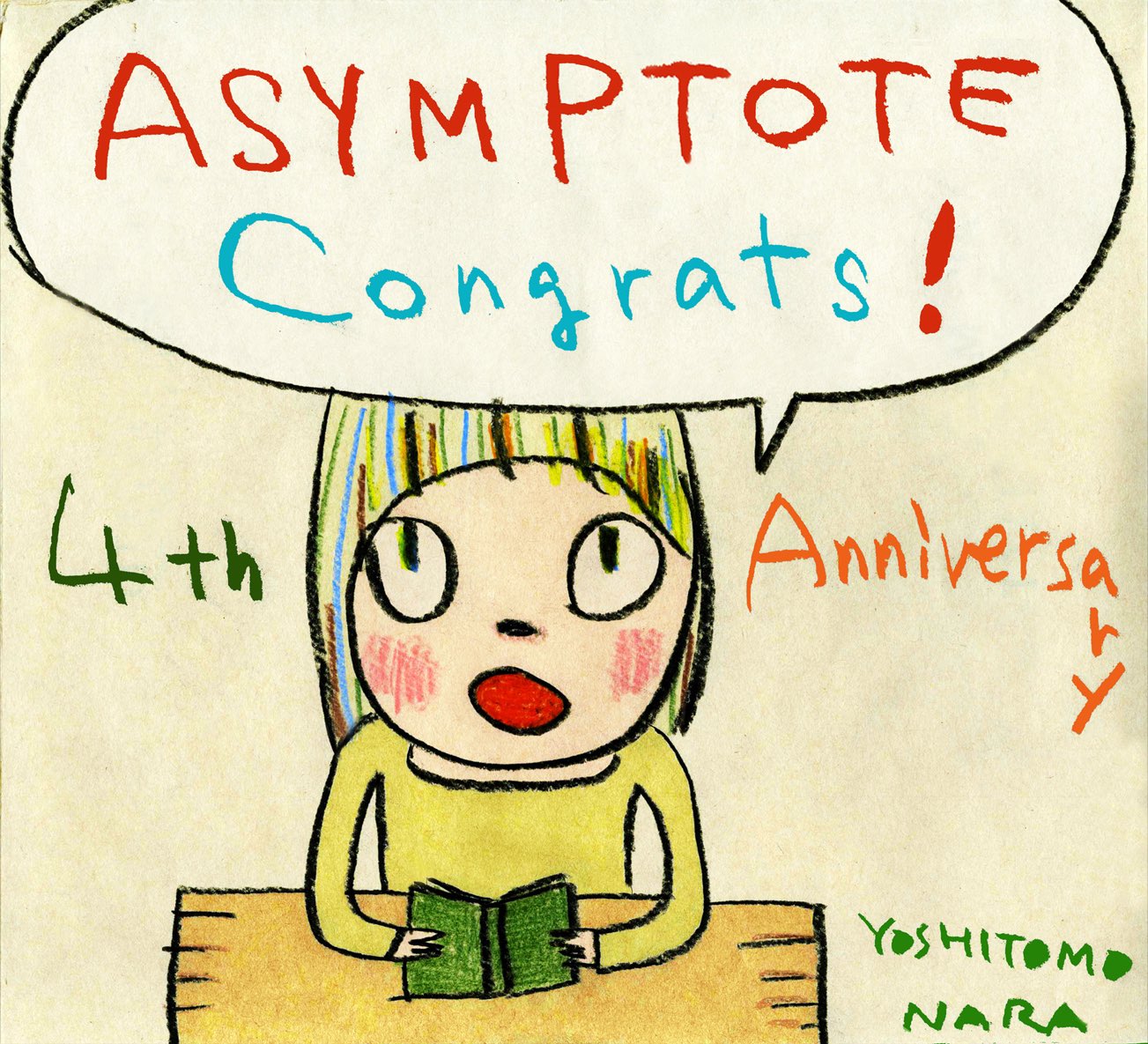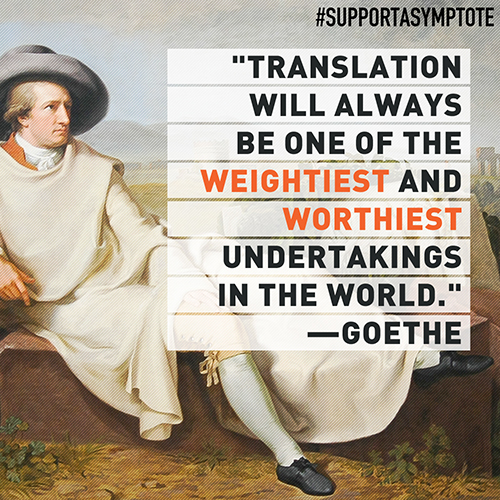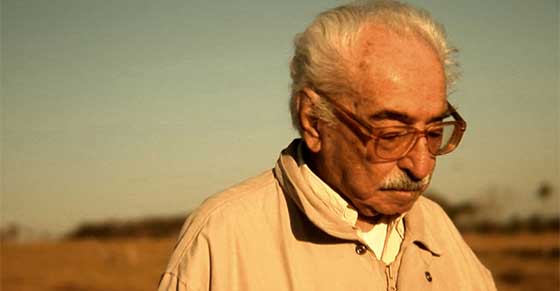Happy Friday, translation friends and fiends! Do you keep a diary? Literary journaling is a genre of its own—arguably the juiciest way to find the real-life parallels in our favorite novels—and Russian behemoth Leo Tolstoy’s work is no exception, though his struggles to narrate the self are arguably more insightful than my teenaged angst. Maybe perennial Nobel-favorite and Japanese author Haruki Murakami might like my tween journals a bit more, as he’s penning an advice column (available in English translation!).
News
Weekly News Roundup, 6 February 2015: Dear Diary, What Are You Comprised Of?

This week's literary highlights from across the world
A Weekend Treat

Start your weekend right by grabbing these new perks! Hurry, as there are very limited copies available!
Reif Larsen, author of the New York Times best-selling The Selected Works of T.S. Spivet and frequent contributor, made us the following brilliant lighthouse-themed video in support of our fundraiser. It’s a scream, really. After getting your fill of laughs, head over to our Indiegogo campaign to check out the newest perks that have been created just in time for the weekend! Yes, it’s true! We’re giving away the very latest titles by our illustrious supporters—other than Reif Larsen, Adam Thirlwell and Deborah Smith, who recently joined us in London for our anniversary event (photos already up here), are also lending a hand. Our Singaporean editor-in-chief couldn’t resist creating the perk “Gateway to Singapore Lit!” comprising a pair of the latest titles by two of the best Singaporean writers today: Desmond Kon and Christine Chia. These books are specially autographed for the campaign; in fact, some are personalized even further—e.g., Reif has said he will even create diagrams for 10 lucky donors! Hurry, as there are limited copies!
Close Approximations Winners: Where Are They Now?

Our very first contest honored emerging translators. Now, a year later, our winners reflect on just what this contest means today
To witness the broad reach of Asymptote, one need look no further than Close Approximations, Asymptote’s first-ever international translation contest targeting fledgling translators and awarding $3,000 in prize money for two categories: poetry and fiction. (That’s $3,000 from your generous donations going directly into the pockets of these literary practitioners, but don’t forget that running a contest also requires heavy promotion—both paid and unpaid—, Asymptote‘s own editorial brainpower—in this case, to screen for the 20 best prose entries—, unseen but substantial administrative work—organizing contest entries and fielding queries from prospective contestants.)
Judged by no less than acclaimed translators Eliot Weinberger (in the poetry category) and Howard Goldblatt (in fiction), this contest received close to 200 submissions. Those who emerged victorious were lauded for their ability to “successfully cross the linguistic boundary,” and render translations that “zip along.” (Here are the complete judges’ citations.) Read on to see where these gifted newcomers find themselves now, a year after winning. If you would like to help us run a second contest (that will include a new nonfiction category!), give us some love—especially now that we’re entering the final stretch of our fundraising campaign, with TEN NERVE-WRACKING DAYS left!
—Lee Yew Leong, Editor-in-Chief
Happy Birthday to Us!

...Asymptote is a rather loquacious four-year-old. Let the festivities commence!
That’s right—your favorite online translation journal turns four this month and world-class writers, translators, and artists like Yoshitomo Nara, who especially made us the drawing above, will be helping us celebrate in a grand way! From now till January 29, we invite you to join us here on the blog as we showcase our proudest achievements and commemorate the most important projects in our four years of promoting world literature. Our brand-new Winter issue then goes live on January 30.
Naturally, you can celebrate our birthday virtually (ICYMI: one need only dig through our archives or explore our world map), but if you’ve got a hankering for a real-life Asymptote meetup, toast one of Entropy‘s 20 Best Journals of 2014 (the only world literature journal on the list!) alongside real-live Asymptote fans, contributors, and staff members at our New York event this Saturday, January 17. Tickets are $10 in advance and $12 at the door—it pays to think ahead.

And if you’re feeling generous, give the gift of literature to yourself and the rest of the globe by donating to our all-important Indiegogo campaign. As of this moment, we’ve already collected $9,158 from 116 donors (thank you!), which means we have $15,842 left to fundraise before our campaign ends on January 29. Our Chinese branch has also pitched in with a fundraising campaign of their own, collecting ¥7035 (or $1,137) from 114 donors so far. If we hit our goal of $25,000, we will be able to continue operating beyond January 2015 and keep bringing you the best world literature has to offer.
Weekly News Roundup, 9th January 2015 (!): Robot Russian, Twin Anna Kareninas

This week's literary highlights from across the world
Happy 2015! This is the first roundup of 2015, but we’re already nine days in—have you broken your resolution yet? (I certainly haven’t been meditating every day). Even if your good intentions have been wavering now that we’re (over a) week in to the new year, do something good for yourself and for global literature by donating to Asymptote‘s Indiegogo campaign—every little bit counts and helps this blog and our big-brother journal publish the world’s best literature for free! READ MORE…
We’ll be taking a break from now till the end of the year, but we hope you’ll check out our Indiegogo campaign in the meantime, if you haven’t already. Thanks to 67 kind souls, we’ve collected $6,000 in less than 3 weeks! But we’ll need more of you to step forward, if we are to operate beyond January 2015. Will you help us continue our mission?

In return for your support, we’ll give away literary care packages, designer AsympTOTEs, and even tickets to upcoming anniversary events (including this one in New York, featuring three of the most beloved translators du jour: Edith Grossman, Damion Searls and Susan Bernofsky).
But, best of all, if we reach our target, we’ll be able to deliver more great international content in 2015, hold a second edition of our translation contest, organize more events, unveil an educational arm, and bring you even more installments of our recently launched podcast!
So that we’ll be able to carry on, give some love to Asymptote today.
Your great support means a lot to us. Happy holidays from us to you!
—The entire Asymptote team
p.s. Did you know? Reif Larsen and Forrest Gander are fans of Asymptote too!
p.p.s. Questions about the campaign? Send them to editors@asymptotejournal.com. We’d be more than happy to hear from you!
Weekly News Roundup, 19th December 2015: Noble/Nobel Buzz, University Navelgazing

This week's literary highlights from across the world
To most Americans, the announcement of most recent literary Nobel laureate French author Patrick Modiano spurred a collective reaction: “who?” But (thanks to translation!), readers are warming up to his noteworthy oeuvre, and he’s gotten a significant boost since the prestigious win. And if you’re heading vers la France in the next few weeks—Christmas in Paris does sound romantic—be sure to check out this walkable guide to the City of LIghts à la Modiano. READ MORE…
Weekly News Roundup, 12th December 2014: Rare! Exciting! Interviewed!

This week's literary highlights from across the world
The mainstream American media is catching on—but doesn’t seem to grab a snag—on elusive and dramatic Italian novelist and cult phenomenon Elena Ferrante, who offered a rare interview to no lower brow than that of the New York Times this week. Check it out. And speaking of the buzz: take a gander at French Nobel laureate Patrick Mondiano’s Nobel speech—the gist is positive (literature is not, and will never be, in danger). READ MORE…
Our New Podcast Is Here!

Travel with us from indigenous Venezuela to Ancient Greece to modern Amsterdam in our first episode...
Mythology – Part One
Podcast: Play in new window | Download
Subscribe: iTunes | Android | RSS
At Asymptote we always try to experiment with different kinds of multimedia, and celebrate the full spectrum of language from the written to the visual to the spoken… So one day we thought: let’s make a podcast!
And here it is, our all-new audio adventure in which we explore some of the most fascinating ideas and issues in international literature. In each episode we’ll be making use of our global scope and travelling far and wide to bring you an eclectic sampler of interviews, readings and mini-documentaries from all over the literary world.
This quarter, we’re delving further into the Mythology theme of our October issue. These myths may be ancient, but they are far from dead. They’re the stories that define who we are today, our fantasies and our fears, our memories and our misconceptions. READ MORE…
Weekly News Roundup, 5th December 2014: Lorca Re-found

This week's literary highlights from across the world
Anyone with a literary pulse noted (and mourned) the passing of former United States poet laureate Mark Strand (here’s a primer to some of Strand’s work, which “moved from common to sublime,” as well as an interview with the Paris Review). And the United Kingdom lost its queen of crime fiction, P. D. James. Finally, another poet passed, but was rediscovered: some of beloved Spanish poet Federico Garcia Lorca’s remains may have been uncovered, perhaps (but only perhaps) offering some answers to those still mystified by his tragic death-by-firing-squad. READ MORE…
Weekly News Roundup, 28th November 2014: Happy Thanksgiving, Shakespeare in France

This week's literary highlights from across the world
Happy (belated) Thanksgiving to our American readers—and to all non-Americans, happy Friday! Anglophones certainly have something to be thankful for: one of William Shakespeare’s treasured First Folios has been uncovered, practically untouched, in a small chapel in France, where it is reported to have lain for over two hundred years. And any literature lover or archivist from the University of Texas might be feeling extra-thankful this week, as the complete archive of Colombian novelist Gabriel García Márquez has been donated to the Harry Ransom Center in Austin. And at the Wall Street Journal, Jennifer Maloney opines that the proliferation of paperback books helped win World War II for the Americans.
This week in book buzz: British/Indian author Arundhati Roy is following up her 1997-Booker Prizewinning God of Small Things, at long last, after a period dedicated to political activism. Here’s a profile. You can look forward to more than that, what with an upcoming translation of German counterculture icon Jörg Fauser’s novel, Raw Material. Irish phenomenon and inspiration to all pining novelists Eimear McBride has snagged another award for A Girl is a Half-Formed Thing, which has already won the Goldsmiths and the Bailey’s Prizes, among others. The biggest international book prize, the IMPAC Dublin award, has announced its glorious longlist, and you might recognize a few titles (the list includes a title translated by Alex Zucker, blog contributor!). If you’re a skeptic to the prospect of awards in general, you might enjoy this look back at the National Book Awards, proving that even the most venerated intellectual institutions are subject to whim and fashion.
French existentialists, philosophers, and novelists Albert Camus and Jean-Paul Sartre didn’t end on the best of terms, but a forgotten letter from better times has reemerged. Same goes for American beats Jack Kerouac and Neal Cassady: a letter from Cassady to Kerouac inspiring Jack’s iconic On the Road is set to be auctioned off.
Every get a 2-AM book craving? (We know you do). In Taiwan, the 24-hour bookstore is a welcome respite for weary clubbers and bookworms alike.
Weekly News Roundup, 21st November 2014: National Translation Awards, Mapped-Out Languages

This week's literary highlights from across the world
The interwebs’ hullabaloo around the recently-awarded (American) National Book Awards occupied much of the literary chitchat this week, but those of us in translation-conscious circles simply mourn that the Awards no longer carve a space for translation prizes. Also this past week: the American Literary Translation Association conference celebrated its largest award, the National Translation Award, given to Matlei Yankeivich and Asymptote-contributor Eugene Ostashevsky’s translation of Russian-language An Invitation for me to Think by Alexander Vvedensky. And the Korea Times announced its modern Korean literature in translation awards this week, too.
Weekly News Roundup, 14th November 2014: Finish Your Books, Discover New Things

This week's literary highlights from across the world
If you’re reading this, chances are you’re Internet-savvy (or at least Internet-literate, which is an appealing almost-rhyme—so you’re a poet, too). And those who use the Internet know what “clickbait” is, or think they do—but it may be time to rethink what that coinage actually means. (Speaking of regrettable words: Time Magazine has a poll asking readers what words/phrases they’d like to ban from the English language—and the word “feminist” is in the list. Seriously?!). While the Internet allows us to look back and cringe at photos, messages, and comments of yesteryear and today, prolific authors are rarely asked to do the same. Here are six authors (including Philip Roth, Asymptote friend Lydia Davis, and Junot Díaz) on some of their earliest work.
Famed French OULIPO member Georges Perec may no longer be living, but a recently discovered manuscript lets readers uncover more of his infuriatingly clever work: A Portrait of a Man was found inside a closet and hits the English-language market this week, thanks to a translation by none other than David Bellos. Yet more literature resurfaces: from famed American writer John Steinbeck, a story read by Orson Welles on radio never reached print—until now. And fans of tragic Welsh poet Dylan Thomas (including yours truly), rejoice: nineteen new poems of his have been uncovered. Now you might understand his tragedy! Finally, Holocaust survivor and Polish memoirist Mary Berg’s archival scrapbooks and journals have surfaced, shedding new light on a lifetime marked by trauma.



